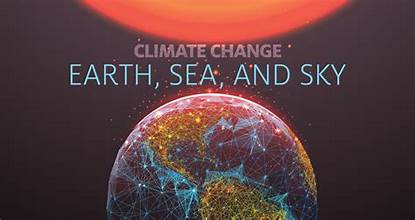
Introduction
Climate change has become a pressing issue with far-reaching consequences. Recent policies aimed at mitigating climate change are reshaping economies globally. This article explores how these policies are influencing various economic sectors, from industry and finance to everyday consumer behavior.
The Shift Towards Green Economies
Recent climate change policies emphasize transitioning to greener economies. Governments worldwide are implementing regulations to reduce carbon footprints, promote renewable energy, and encourage sustainable practices. This shift is creating new economic opportunities and challenges:
- Renewable Energy Investments: Policies supporting renewable energy sources, such as wind, solar, and hydro power, are driving significant investment in these sectors. This shift not only reduces reliance on fossil fuels but also creates jobs and stimulates economic growth in emerging green technologies.
- Energy Efficiency Standards: Stricter energy efficiency standards for buildings and appliances are leading to reduced energy consumption and operational costs for businesses and households. While the initial investment might be high, long-term savings and environmental benefits are substantial.
Economic Impacts on Different Sectors
1. Industry and Manufacturing
Climate policies are compelling industries to adopt cleaner technologies and processes. The impact varies across sectors:
- Heavy Industries: Sectors like steel, cement, and chemicals face higher operational costs due to stringent emission regulations. These industries are investing in technologies to capture and store carbon or switch to low-carbon alternatives, which may increase production costs in the short term.
- Technology and Innovation: On the flip side, the push for green technologies is fostering innovation. Companies specializing in energy-efficient technologies, electric vehicles, and sustainable materials are experiencing growth and attracting investment.
2. Finance and Investment
Financial markets are increasingly factoring climate risks into their investment decisions:
- Green Bonds and Sustainable Investing: There is a rise in green bonds and sustainable investment funds, which aim to finance projects that have positive environmental impacts. Investors are showing greater interest in companies with strong sustainability practices, influencing corporate behavior.
- Risk Management: Climate policies are prompting businesses and financial institutions to assess and manage climate-related risks. This includes potential impacts on asset values, supply chains, and regulatory compliance, influencing investment strategies and insurance markets.
3. Consumer Behavior
Climate policies are also affecting consumer choices:
- Sustainable Products: There is growing demand for eco-friendly products and services. Consumers are increasingly prioritizing sustainability in their purchasing decisions, which is driving companies to adopt greener practices and offer sustainable options.
- Cost Considerations: While some sustainable products may have higher upfront costs, the long-term savings and benefits often outweigh these initial expenses. For example, energy-efficient appliances and electric vehicles may be more expensive initially but save money in the long run through lower operating costs.
Regional Variations and Challenges
The impact of climate change policies varies by region due to different economic structures and levels of development:
- Developed Economies: Developed nations with established industries and higher levels of investment are better positioned to adapt to and benefit from climate policies. They have the resources to invest in green technologies and implement sustainability practices more effectively.
- Developing Economies: Developing countries face challenges in implementing climate policies due to limited resources and economic constraints. However, they are also recipients of international climate finance and technology transfers, which help them transition to greener practices while fostering economic growth.
Long-Term Economic Benefits
While the transition to greener economies presents challenges, it also offers significant long-term benefits:
- Job Creation: The green economy is creating new job opportunities in sectors such as renewable energy, energy efficiency, and environmental management. These jobs contribute to economic growth and can help offset job losses in traditional industries.
- Innovation and Competitiveness: Investment in green technologies fosters innovation and enhances the competitiveness of economies on the global stage. Countries that lead in sustainable technologies can gain a competitive edge in international markets.
- Health and Environmental Benefits: Reducing greenhouse gas emissions and pollution improves public health and preserves natural resources, contributing to overall economic well-being.
Conclusion
Recent climate change policies are transforming global economies in profound ways. While there are challenges, particularly for certain industries and regions, the long-term economic benefits of transitioning to greener economies are substantial. By fostering innovation, creating jobs, and promoting sustainability, these policies are paving the way for a more resilient and prosperous future. As the world continues to address climate change, ongoing adaptation and investment will be crucial in maximizing the positive impacts on economies globally.

